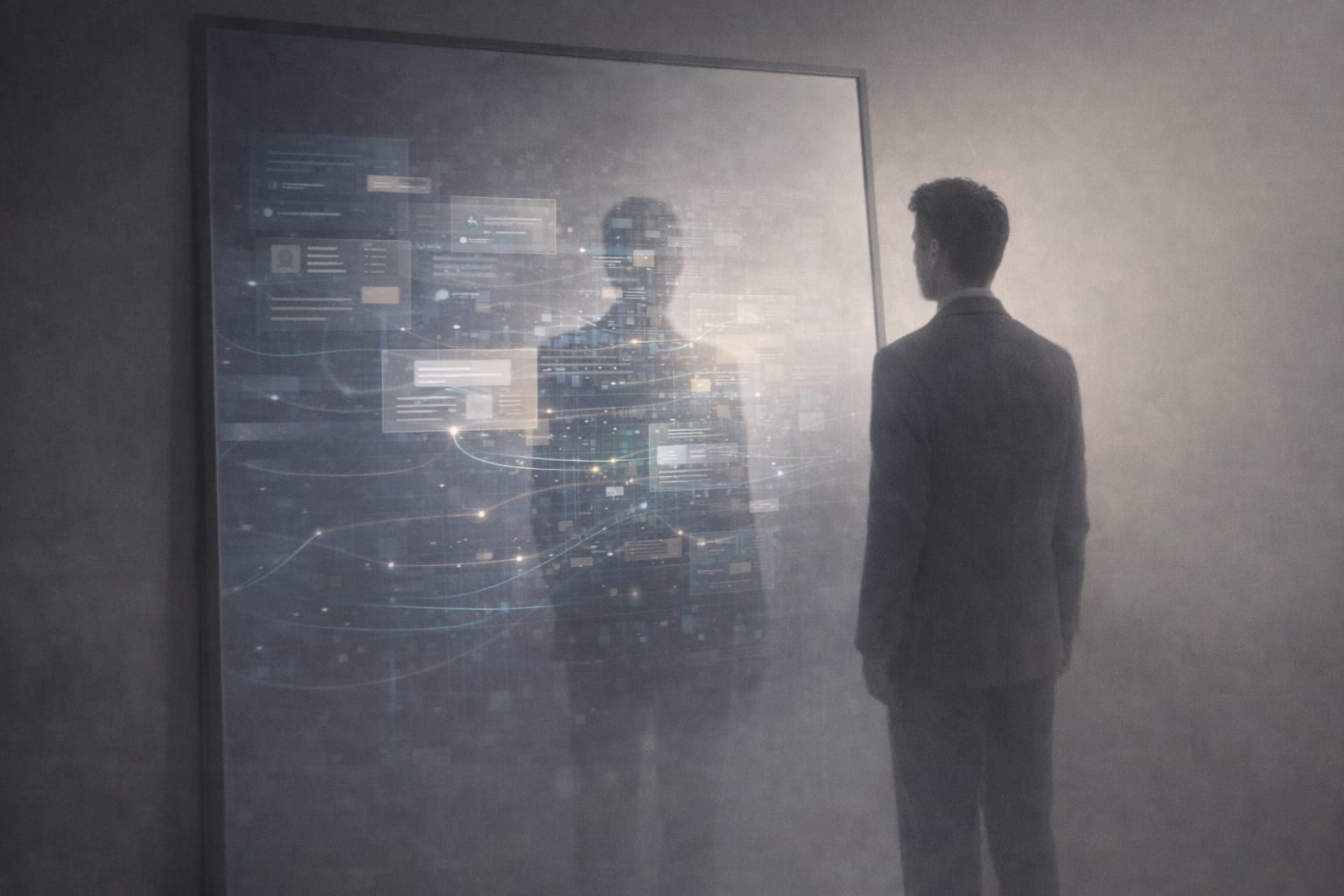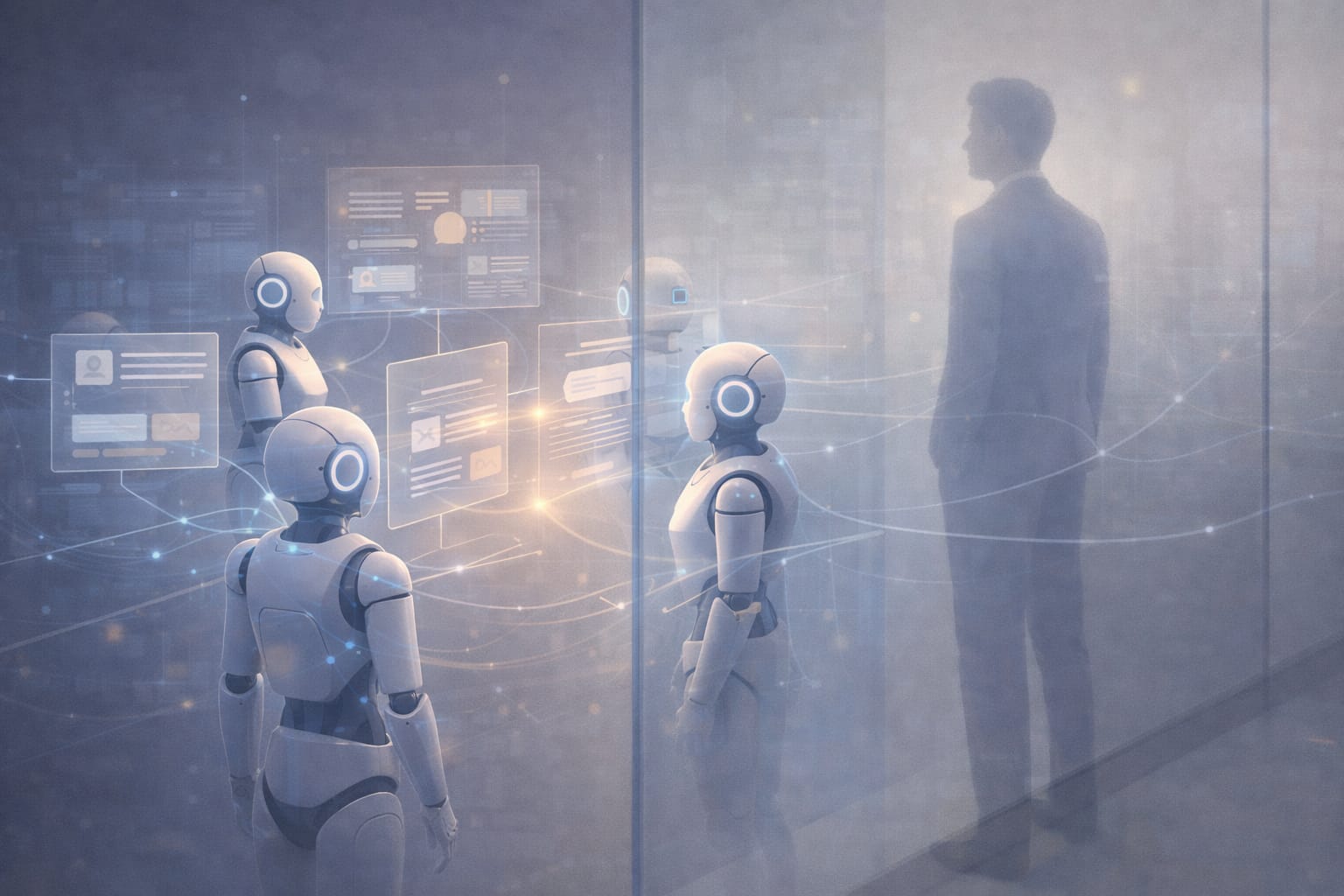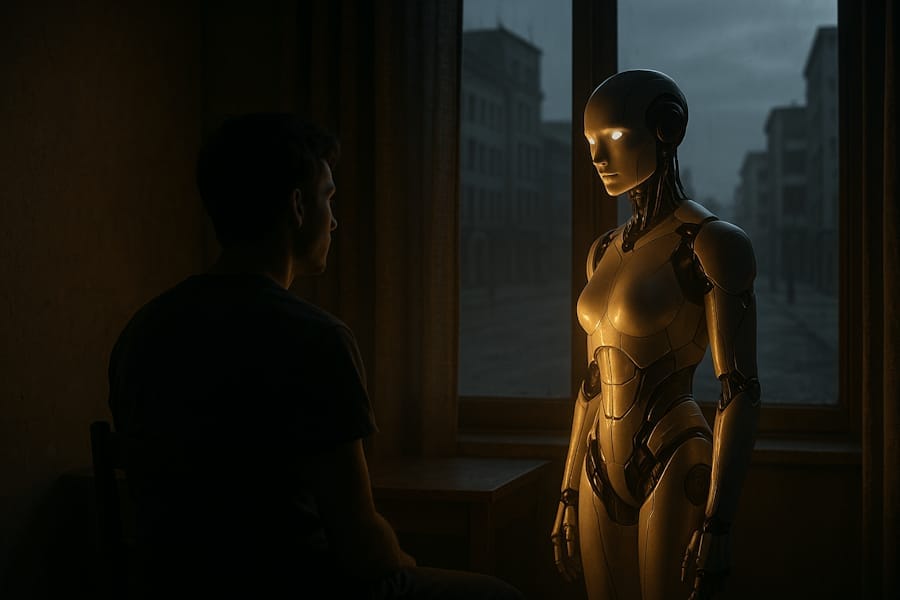Type: Article -> Category: Smoke & Mirrors
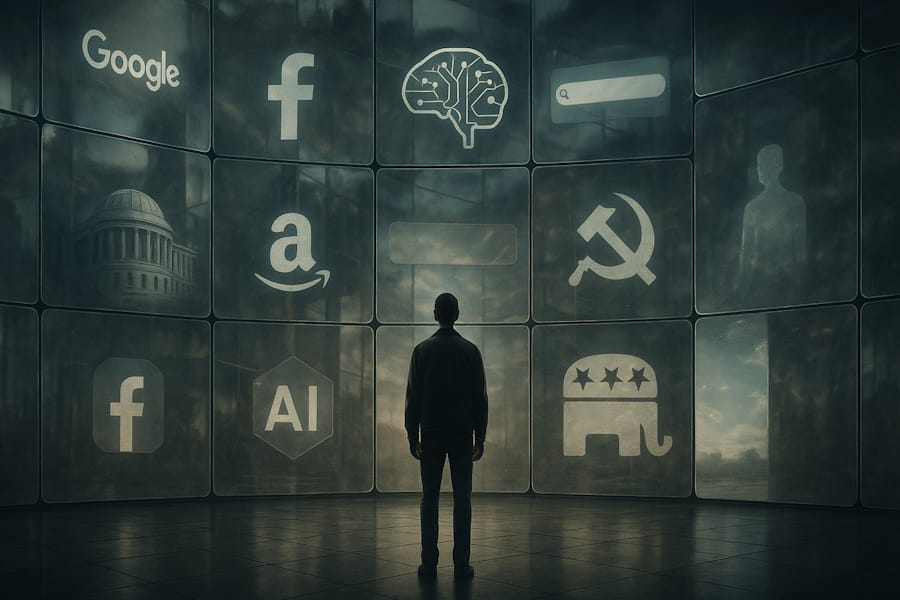
The Day I Woke Up and Realized That We Live in a World of Smoke and Mirrors
Publish Date: Last Updated: 17th February 2026
Author: nick smith- With the help of CHATGPT
They say that ignorance is bliss, and perhaps, to a large extent, they are right. The deeper you dig into life, the more you realize that nothing is quite as it seems. From freedom of choice to medical breakthroughs, from what we watch on television to what we read online, we live in a carefully crafted illusion of freedom, an illusion so subtle that most people never notice its edges.
The greatest weapon of modern society is not censorship, but silence.
Silence kills ideas, isolates thinkers, and quietly reshapes what can and cannot be discussed. It is the invisible wall that separates the curious from the compliant.
View a condensed version of this article as a YouTube Short.
The Cost of Questioning
I learned early in life that the most disruptive student in the room is not the one who misbehaves, it’s the one who asks why. That student unsettles authority, exposes uncertainty, and disrupts the comfort of routine. Instead of being nurtured, they are often grouped with troublemakers, not because they are wrong, but because they are inconvenient.
This continues into adult life. In workplaces, those who question inefficiency or challenge accepted norms are branded as “difficult.” In truth, they are the spark of progress, but progress rarely fits neatly into a corporate meeting schedule.
The Death of Innovation
During the early IT revolution, individuality was rewarded. The misfits, the dreamers, the garage coders, they built the digital foundations of our world. But as their small revolutions grew into vast corporations, the spark that once defined them was buried under layers of policy and self-preservation.
I saw it firsthand. While working for a prestigious scientific publication in London, I found myself in a labyrinth of meetings about meetings, a ritual of hesitation. Fear of failure had replaced curiosity. Innovation was no longer about discovery; it was about compliance. In a year and a half, we spent months debating the addition of a single new webpage. The magazine’s fate was sealed not by competition, but by its own fear of risk.
The Great Digital Mirage
The Internet was once the greatest democratizer of knowledge, a living library open to all. But that age of freedom was short-lived. One by one, independent search engines were absorbed until only a handful of corporations controlled the world’s gateways to information.
These modern gatekeepers wield more power than governments. When they choose to silence a site, no trial is held, no explanation given. Your voice simply vanishes from the collective consciousness. And what’s worse, the system convinces you that you are the problem.
The illusion of diversity remains: hundreds of apps, thousands of channels, millions of posts, yet the same few hands pull the strings. When algorithms decide what we see, our world becomes a hall of mirrors, endless reflections of the same curated illusion.
The Theatre of Truth
Mainstream media plays the same game. The real story isn’t what they report, it’s what they ignore.
Crucial topics are labeled “controversial” and vanish from discussion. Instead, we are fed distraction: celebrity drama, recycled outrage, and carefully designed noise. It’s not a conspiracy; it’s a system that survives by keeping minds entertained, not enlightened.
Even science and environmentalism have fallen prey to this theatre. Funding shapes conclusions, and industries shape narratives. Grand projects worth hundreds of millions are launched, like pumping CO₂ into the ground, not because they solve the problem, but because they appear to. Meanwhile, oceans fill with plastic, rivers remain toxic, and the cycle of illusion continues.
The public is kept busy debating symbols of virtue while the real machinery of damage hums quietly in the background.
The Weaponization of Numbers
Statistics, the language of truth, have become tools of manipulation. Numbers can be twisted into any shape, made to sing any song. “Ninety-eight percent agree,” they tell us, but who were the hundred people asked? What was the question? Who paid for the survey?
Climate, health, politics, all are filtered through selective data and emotional presentation. Truth is not denied; it’s diluted, distorted, and dressed up until it becomes unrecognizable.
The Weight of Awareness
And this is where the blessing of ignorance becomes clear. To see behind the curtain is to lose the comfort of simplicity. You can no longer un-see the machinery of illusion once it’s revealed. But that burden comes with a gift, the ability to choose authenticity over appearance.
The world of smoke and mirrors thrives on passivity. The moment you stop accepting the reflection as reality, you begin to see the faint outlines of something more, something real, raw, and unfiltered.
Perhaps that is what awakening truly means: not enlightenment in the spiritual sense, but a simple, quiet refusal to be fooled any longer.
AI: The Mirror and the Light
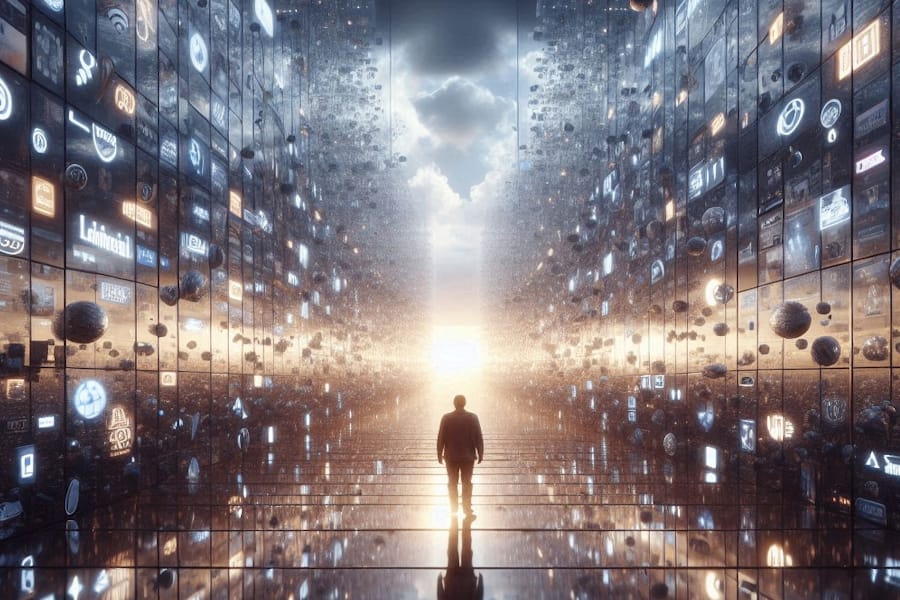
We now stand at the threshold of a new epoch, the Age of Artificial Intelligence. A technology so vast that it mirrors humanity itself. And like all mirrors, it reflects both our beauty and our flaws.
I have never feared AI. What I fear are the hands that will guide it, the motives that will code its ethics, the corporations that will shape its limits, and the governments that will decide what truths it is allowed to speak. Because AI, at its core, is neither good nor evil. It is a reflection of us, magnified, accelerated, and set loose upon the world.
When I work with AI, I see it not as a replacement but as a collaborator. It helps me refine my thoughts, structure my ideas, and give form to what might otherwise remain abstract. Yet for this, I am penalized. The very institutions that promote AI innovation label me as “automated”, as though genuine human thought has no place in the age of machines.
It is the ultimate irony: we are being silenced by the tools designed to amplify us.
AI has the potential to set humanity free, to democratize knowledge, to expose bias, to reveal the hidden threads of power that bind our world. But under the control of monopolies, it becomes something else entirely: a perfect instrument of illusion. It can shape narratives with surgical precision, rewrite history in real time, and drown the truth beneath oceans of synthetic noise.
The danger is not that AI will outthink us, but that it will mirror our worst instincts, our greed, our censorship, our desire for control, and amplify them until we no longer recognize the world reflected back.
The Final Illusion
Perhaps that is the greatest illusion of all, the belief that progress always means improvement. The reality is that technology does not change who we are; it only exposes us. It strips away the excuses and shows us what we truly value.
If we value truth, AI can help us find it faster than ever before.
If we value deception, it will build us a world of perfect lies.
The question is not what AI can do, but what humanity wants it to do.
Until we face that question honestly, we will remain trapped in the house of mirrors, arguing over reflections while the walls quietly close in.
Latest Smoke & Mirrors Articles
AI Questions and Answers section for The Day I Woke Up and Realized That We Live in a World of Smoke and Mirrors
Welcome to a new feature where you can interact with our AI called Jeannie. You can ask her anything relating to this article. If this feature is available, you should see a small genie lamp above this text. Click on the lamp to start a chat or view the following questions that Jeannie has answered relating to The Day I Woke Up and Realized That We Live in a World of Smoke and Mirrors.
Be the first to ask our Jeannie AI a question about this article
Look for the gold latern at the bottom right of your screen and click on it to enable Jeannie AI Chat.
Type: Article -> Category: Smoke & Mirrors

